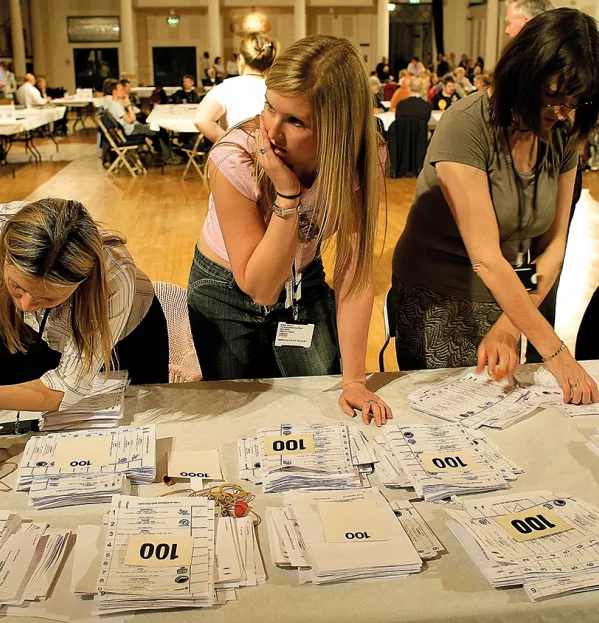Let’s inspire our students to feel part of the election

The snap general election took most of us by surprise, and it doesn’t help that it’s occurring in the middle of GCSEs and A levels. Although teachers must remain impartial - the Education Act 1996 forbids “the promotion of partisan political views in the teaching of any subject” - we are in a valuable position to help students access information to allow them to make an informed decision on their future.
It’s the last chance to get students registered to vote for the general election. If you spend time standing in front of a class with over-18s, it’s your duty to explain the importance of their vote. If you’re reading this on or before 22 May, take time out of your lesson to get your students to register.
If the deadline has passed, it’s still fundamental that students know the importance of a general election - even if they’re not registered or old enough to vote.
Yes, the timing is bad: it’s coming up to exams, there are revision classes and students and teachers are stressed. But these, along with cuts to FE funding and benefits for young people and a lack of support for student mental health issues, are exactly the reasons why we should be encouraging students to participate in the political process.
There is even an online quiz that will give students an idea of which party shares their views on some of the big issues facing the country.
Never has there been a more important time to get young people involved in politics. Generation Z - people born around the time of the millennium - are having it much harder than recent generations did at their age. They feel let down by older generations who voted for Brexit against the will of the majority of under-25s. With the rise in zero hour contracts, student debt and expensive housing, the future looks bleak for many.
It’s great to see that young people are taking a stand: since Theresa May called the election, more than 100,000 under-25s have registered to vote. It may be that the shock Brexit result spurred them into action. Whatever the reason, it’s up to us to promote that participation.
Best of a bad bunch?
It’s our responsibility to nurture political engagement, whatever our personal feelings. This is not the time for cynicism or political apathy. The political landscape may look depressing to us, but we must put this aside and promote positivity to make sure young people know their voices mean something and their vote can change their future.
Everyone has a political bias and it can be hard to remain impartial - be truthful about this. Show your students the difference in coverage of the same story between the Guardian and the Daily Mail, reflecting how differently news can be perceived depending on the bias of the publication. Getting students to explore different news outlets encourages them to form their own opinions rather than just adopting those of their parents.
The three main parties have all let young people down before. Labour introduced tuition fees in 1998. The Liberal Democrats raised tuition fees in 2012 as part of the coalition government, which also cut the FE teaching budget by 25 per cent. The Conservatives have continued to make cuts to FE as well as reducing housing benefit for under-21s and giving under-25s a smaller increase in the recent minimum wage rise.
It can feel like picking the best of a bad bunch, but that’s better than ending up with the worst. Teachers have to convince students to decide which policies are important to them and affiliate with the party most closely sharing their beliefs
To many, this election seems done and dusted. The Conservatives fully expect to win. All too often we hear “what’s the point?”, both in the classroom and when talking about voting. We challenge it in the classroom and we should challenge it when discussing the general election.
After the Brexit decision, a survey showed that, had 16 and 17-year-olds been able to vote, the result would have been for Britain to remain in the European Union. Many of those 17-year-olds are now eligible to vote. We could see an unexpected result.
We all love an inspirational quote in education. To paraphrase writer and political activist Eldridge Cleaver: if you’re not part of the solution, you’re part of the problem. Even if this election goes the way it’s predicted, at least you’ll know you did your bit to instil the importance of voting in a future generation.
Paula McGregor is an English teacher and freelance writer. She tweets @paula_luce
You need a Tes subscription to read this article
Subscribe now to read this article and get other subscriber-only content:
- Unlimited access to all Tes magazine content
- Exclusive subscriber-only stories
- Award-winning email newsletters
Already a subscriber? Log in
You need a subscription to read this article
Subscribe now to read this article and get other subscriber-only content, including:
- Unlimited access to all Tes magazine content
- Exclusive subscriber-only stories
- Award-winning email newsletters